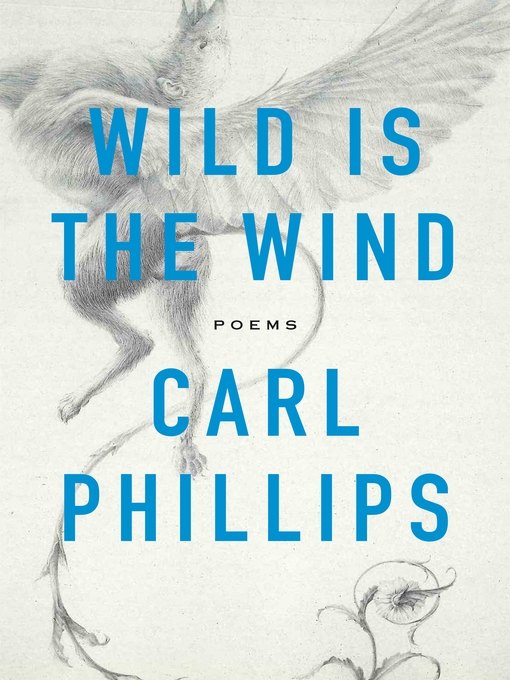Winner of the Los Angeles Times Book Prize
A powerful, inventive collection from one of America's most critically admired poets
"What has restlessness been for?"
In Wild Is the Wind, Carl Phillips reflects on love as depicted in the jazz standard for which the book is named—love at once restless, reckless, and yet desired for its potential to bring stability. In the process, he pitches estrangement against communion, examines the past as history versus the past as memory, and reflects on the past's capacity both to teach and to mislead us—also to make us hesitate in the face of love, given the loss and damage that are, often enough, love's fallout. How "to say no to despair"? How to take perhaps that greatest risk, the risk of believing in what offers no guarantee? These poems that, in their wedding of the philosophical, meditative, and lyric modes, mark a new stage in Phillips's remarkable work, stand as further proof that "if Carl Phillips had not come onto the scene, we would have needed to invent him. His idiosyncratic style, his innovative method, and his unique voice are essential steps in the evolution of the craft" (Judith Kitchen, The Georgia Review).
- Women's History Month
- Staff Picks: Best Books We Read in 2024
- King of Horror and More!
- Love Bridgerton? Try these!
- Carlsbad City Library's book group titles for adults and teens
- Understanding the Israeli-Palestinian Conflict
- Favorite Historical Fiction eBooks
- Available now
- New eBook additions
- Biography & Memoir
- Dual Timeline
- New kids additions
- New teen additions
- See all ebooks collections
- Women's History Month
- Staff Picks: Best Books We Read in 2024
- King of Horror and More!
- Love Bridgerton? Try these!
- Recent Award-Winning Audiobooks
- Favorite Historical Fiction eAudiobooks
- Carlsbad City Library's book group titles for adults and teens
- Adult Paranormal Romance Series to Explore
- Available now
- New audiobook additions
- Celebrity memoirs
- New teen additions
- Most popular
- See all audiobooks collections


